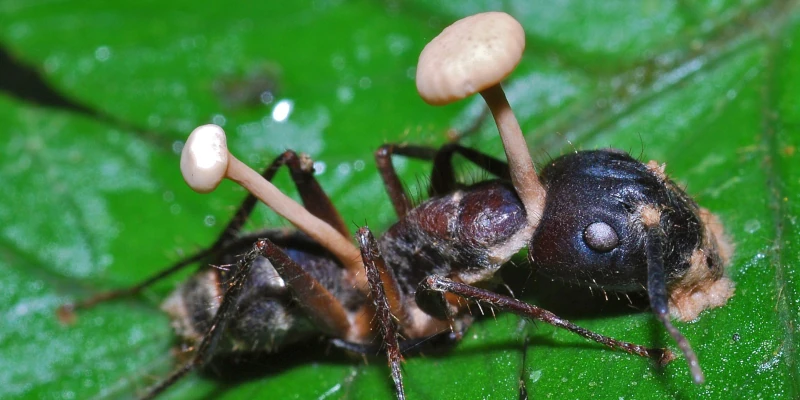
Essay by Eric Worrall
Fungal Fiction mimicking fiction?
Guest post: Fungal infections are adapting to climate change – and threatening public health
Fungi are learning to adapt to climate change, posing a major threat to human health.
…
Fungi are known for their ability to adjust to – and thrive in – new and changing environments.
Now, they are learning to adapt to the rising temperatures, changing rainfall patterns and extreme weather events that characterise a warming planet.
…
Historically, most fungi do not cause disease in humans, meaning they are not “pathogenic”.
This is because – unlike viruses and bacteria – most fungi cannot survive or spread in body temperatures of 37C.
But, as global temperatures rise, some fungi are adapting to survive in hotter environments, including the human body.
…
Read more: https://www.carbonbrief.org/guest-post-fungal-infections-are-adapting-to-climate-change-and-threatening-public-health/
The article goes on to give a new WHO monitoring programme a plug.
How can anyone take claims like this seriously? The Carbon brief article is straight out of the plot of “The Last of Us”, a hit series about fungus attacking humans and turning humans into hybrid zombies, all because of global warming.
While our body heat does provide a barrier against fungal infection, it is not much of a barrier. Immunocompromised people suffer horrible problems from fungus infections – their body heat does not protect them.
Fungal infections in immunocompromised critically ill patients
Author links open overlay panelJosé Garnacho-Montero
, Irene Barrero-García
José Garnacho-Montero, Irene Barrero-García, Cristina León-Moya
https://doi.org/10.1016/j.jointm.2024.01.005Get rights and content
Abstract
Diverse pathogenic fungi can produce severe infections in immunocompromised patients, thereby justifying intensive care unit (ICU) admissions. In some cases, the infections can develop in immunocompromised patients who were previously admitted to the ICU. Aspergillus spp., Pneumocystis jirovecii, Candida spp., and Mucorales are the fungi that are most frequently involved in these infections. Diagnosis continues to be challenging because symptoms and signs are unspecific. Herein, we provide an in-depth review about the diagnosis, with emphasis on recent advances, and treatment of these invasive fungal infections in the ICU setting.
Read more: https://www.sciencedirect.com/science/article/pii/S2667100X2400015X
I enjoyed watching series one of “The Last of Us”, it was a great zombie story. I loved the apocalyptic final episode of series one – reminiscent of great Western movies like “Unforgiven”. But to watch such fiction in comfort you have to park your scientific skepticism with the opening credits.
0 0 votes
Article Rating
Like this:
Like Loading…
Related
Discover more from Watts Up With That?
Subscribe to get the latest posts sent to your email.
Welcome to Watts Up With That, one of the most well-known climate blogs! We gather the latest scientific research, news, and expert opinion to help you understand how our planet is changing and what implications it may have for humanity. Our approach is based on facts, objective analysis, and open discussions about one of the most critical issues of our time. Watts up with that climate and what changes await us – let’s figure it out together!
Watts Up With That covers a wide range of topics related to climate change and its impact on the world. Here’s what’s important to us:
Global warming – its causes, consequences, and future forecasts.
Analysis of current climate research and its findings.
Climate change news.
Extreme weather events – hurricanes, droughts, floods, and their connection to climate change.
The impact of different energy sources on the environment and the development of sustainable technologies.
Political and economic aspects and how states and international organizations respond to climate change.



